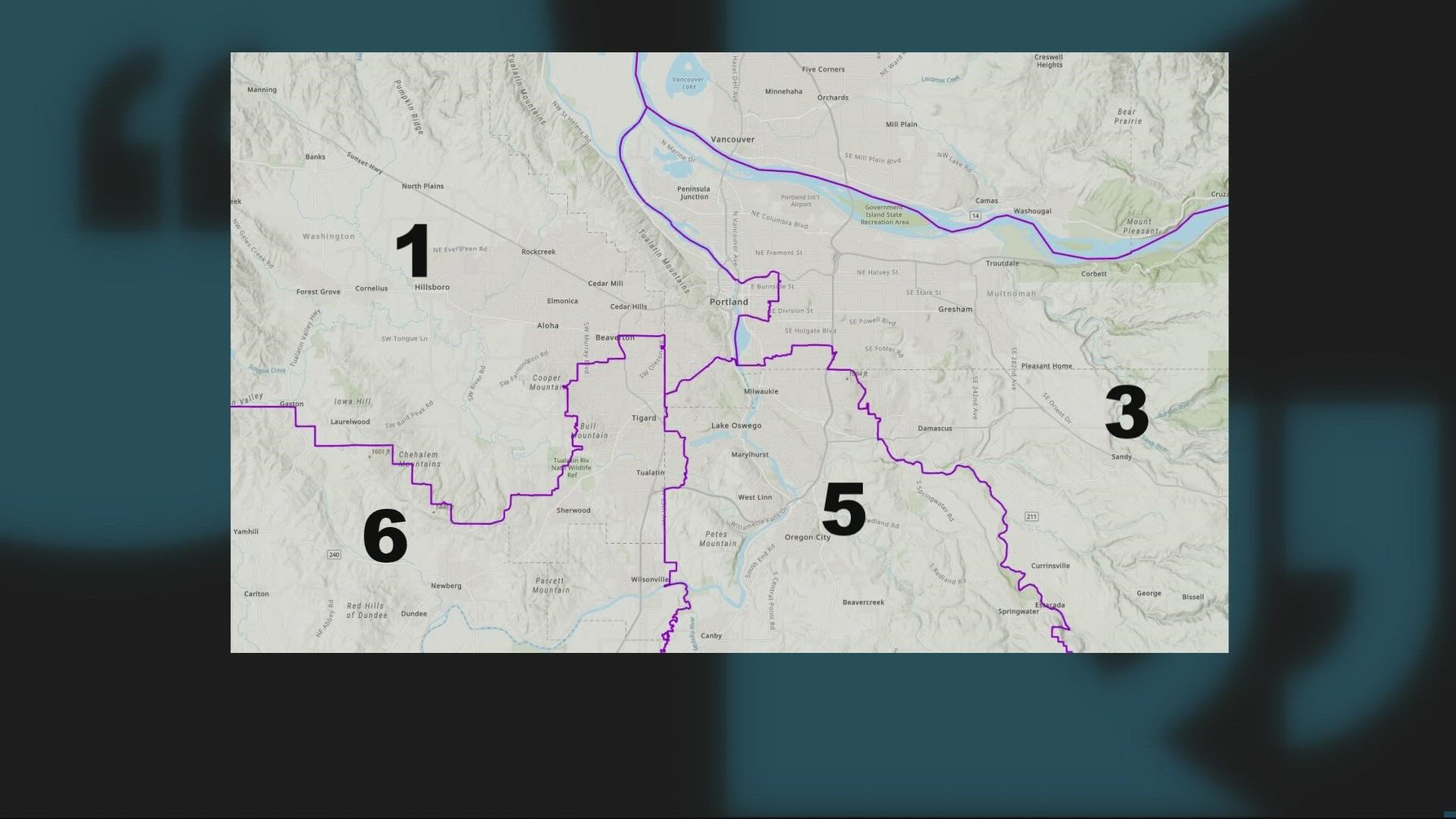SALEM, Ore. — Oregon's redistricting maps have been approved, but the Princeton Gerrymandering Project — a team of academics and legal analysts at Princeton University — gave the state a failing grade for partisan fairness.
Lawmakers approved the Democrats' plan on a nearly party-line vote late last month. The new map includes six congressional districts, with five leaning Democratic and one leaning Republican.
"Oregon got an 'F' because of the combination of its map not being fair to Republicans in the state of Oregon and the fact that there weren't enough competitive districts," said Adam Podowitz-Thomas, a senior legal strategist on the Princeton Gerrymandering Project. "We have a computer program that generates a million maps using an algorithm, and it does so by taking into consideration Oregon's political geography, so it thinks about where folks are located. It takes into consideration the various criteria that map drawers have to comply with when they're drawing the lines and then says, 'What would the expected partisan outcomes of this million maps be?'"
What does an "A" grade look like?
Podowitz-Thomas said their algorithm would have given Oregon a 4-2 delegation.
"Not dramatically different from the map that was drawn, and it still would have given more congressional seats to the Democratic party, but it would just say that there should have been probably one more Republican-leaning seat," Podowitz-Thomas said.
Princeton Gerrymandering Project also analyzed other states' redistricting maps.
"Oregon's map is probably on par with the maps that we're seeing state legislatures drawing," Podowitz-Thomas said. "We are seeing that they are often partisan gerrymanders. We've been giving out a lot of 'Fs'. Texas, for example, got an 'F,' Illinois is in the process of finishing up their process and we gave them an 'F' as well, but that compares quite sharply to those states where there were some sort of citizens commission drawing the maps. So for example, in Colorado, where they passed a ballot initiative that puts the map drawing process into the hands of citizens, we gave those maps an 'A' so it does sort of suggest that when you take out the political actors from the process, that you can get fair maps."
A group called "People Not Politicians" is trying to get an initiative on Oregon's 2022 ballot to create an independent redistricting commission. This means lawmakers wouldn't be involved in the redrawing process.

